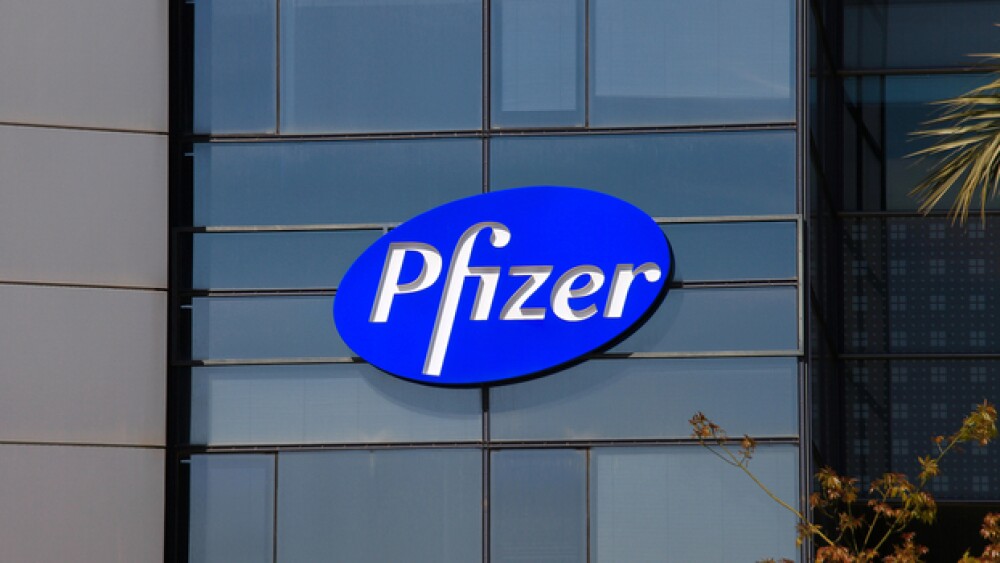It is approved for adults with non-Hodgkin’s lymphoma, chronic lymphocytic leukemia, granulomatosis with polyangiitis and microscopic polyangiitis.
Stock Studio / Shutterstock
The U.S. Food and Drug Administration (FDA) approved Pfizer’s Ruxience (rituximab-pvvr), a biosimilar to Genentech and Biogen’s Rituxan (rituximab). It is approved for adults with non-Hodgkin’s lymphoma (NHL), chronic lymphocytic leukemia (CLL), granulomatosis with polyangiitis (GPA) and microscopic polyangiitis (MPA).
A biosimilar is a generic version of a biologic drug. However, a generic is a direct copycat, while a biosimilar is similar to the branded drug, and as such requires a regulatory approval process much like a new drug.
Pfizer’s Ruxience wasn’t granted approval for rheumatoid arthritis (RA). It was evaluated in a Phase I clinical trial comparing it to two different rituximab reference product, MabThera (in Europe) and Rituxan (in the U.S.), in 220 patients with active RA. The pharmacokinetics of all three products was similar.
No launch date for Ruxience has been announced, but Pfizer settled with Roche, Genentech’s parent company, earlier this year over a key patent for the brand-name rituximab.
There is already a biosimilar on the market for rituximab, Celltrion and Teva’s Truxima. However, Truxima is not yet marketed in the U.S., and was only approved for cancer indications because of U.S. patent challenges.
In 2018, Rituxan brought in $4.24 billion in U.S. sales alone, an increase of 4% from the previous year. Biosimilar penetration tends to be slower in the U.S. than in Europe. In the third quarter of 2018, Rituxan sales plunged 49% in the European Union from competition from Truxima.
In November 2018, another potential competitor, Novartis’ Sandoz unit, seemed to pull out of the biosimilar race for Rituxan after the FDA rejected its application for a biosimilar.
“Rituximab became one of the first monoclonal antibody (mAb) cancer treatments when it was initially approved by the FDA, representing a significant treatment advance and the only option available to oncologists and their patients for a period of time,” stated Jeff Sharman, medical director, Pfizer’s U.S. Oncology Hematology Research. “With this FDA approval, clinicians have an additional treatment option that will help improve access to care for patients in need of anti-CD20 mAb therapy.”
Pfizer is also getting hit hard with generic competition. This week, after the final patent coverage for its Lyrica (pregabalin) ended, the FDA approved nine generic versions of the drug, including InvaGen Pharmaceuticals.
Pfizer’s Lyrica brought in $5.4 billion for the 12-month period ending March 2019. GlobalData projects that global sales of Lyrica will drop from $5 billion in 2018 to $950 million in 2024.
Pfizer’s Lyrica patent expired on December 30, 2018. Other generic drug companies, such as Mylan, Teva and Novartis Sandoz had received tentative approval for generic versions of pregabalin by the FDA, but the launches were postponed until mid-2019. This was the result of Pfizer receiving a six-month patent-term extension from the FDA for pediatric exclusivity
Pfizer has been aggressive in protecting Lyrica’s patents. It first lost exclusivity for epilepsy and anxiety in July 2014 in Europe. Another patent for neuropathic pain was set to expire in July 2017. The company challenged the expiration in the UK, “arguing that the generic pregabalin, which was set to launch for epilepsy and anxiety, would also be prescribed off-label by physicians, encroaching on the patented neuropathic pain use,” reported Pharmaceutical Technology in November 2018.
Pfizer filed a lawsuit against Actavis (Allergan) and Mylan. Those companies had launched a generic version of pregabalin with what was dubbed a “skinny label” that excluded pain. Pfizer also issued a warning letter to physicians not to prescribe generic pregabalin for neuropathic pain.
In September 2015 and October 2016, two courts ruled that generic drug manufacturers can avoid infringement if it “takes all reasonable steps within its power” to stop physicians from prescribing the generic version for still-covered indications. The UK Supreme Court on November 14, 2018, dismissed Pfizer’s last attempt to protect the brand and the secondary patent for neuropathic pain was held invalid.
But in the U.S., Pfizer won its court ruling blocking generic versions of Lyrica for its approved indications until December 2018, when U.S. patents expired. Then it filed for pediatric exclusivity in the U.S., and was granted the six-month extension.





